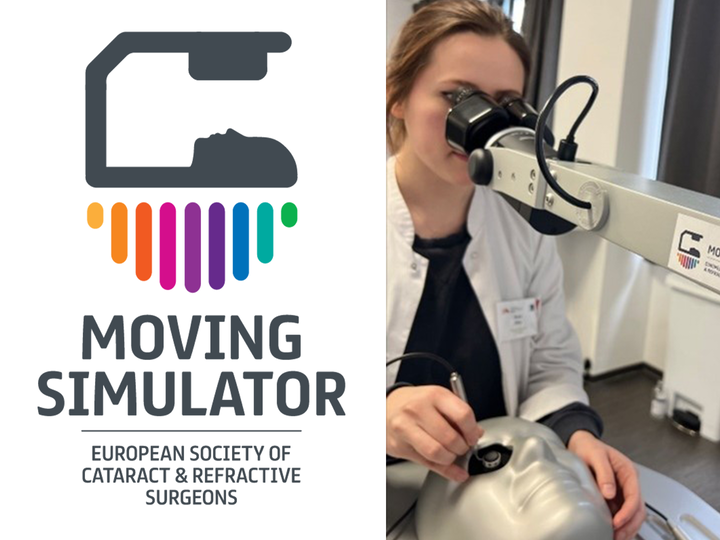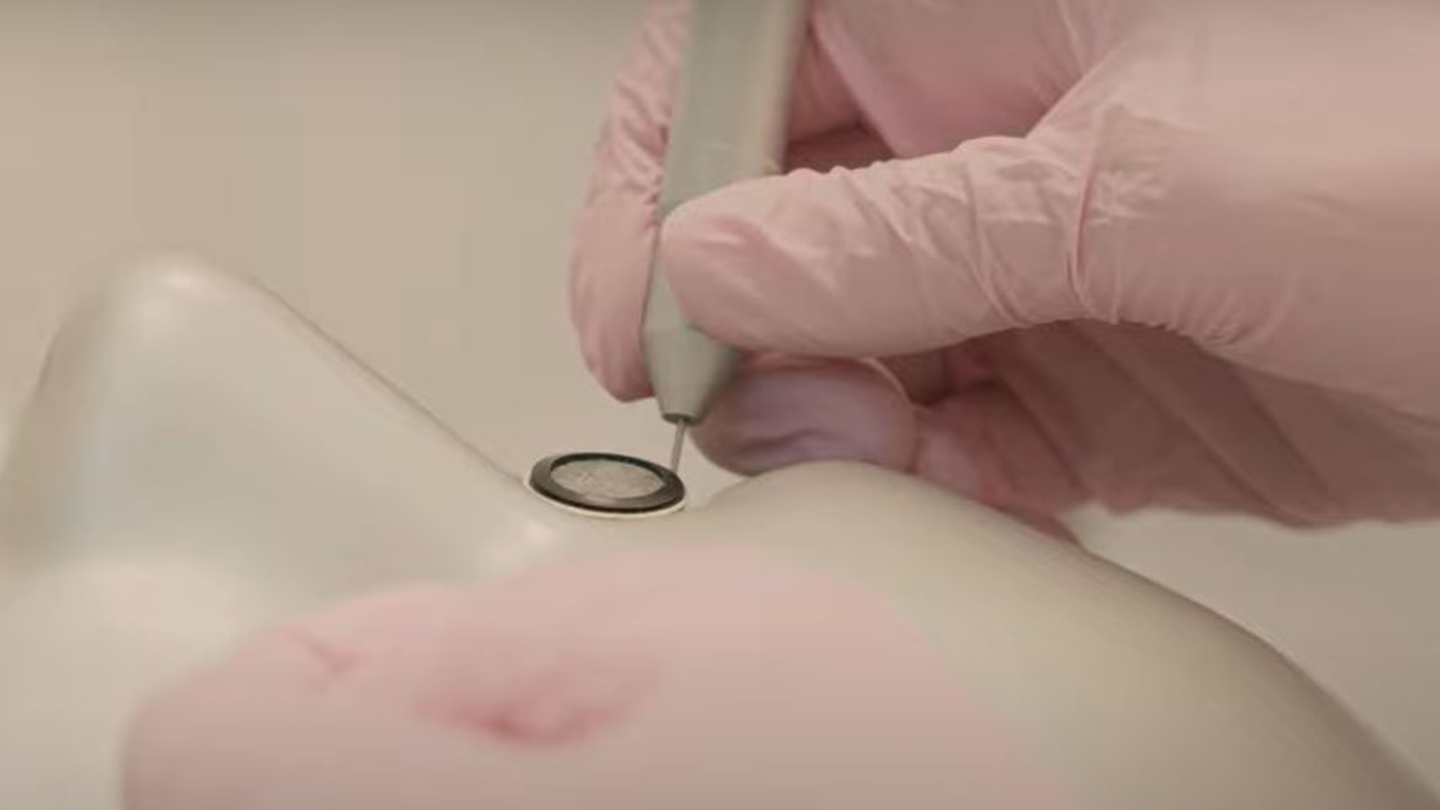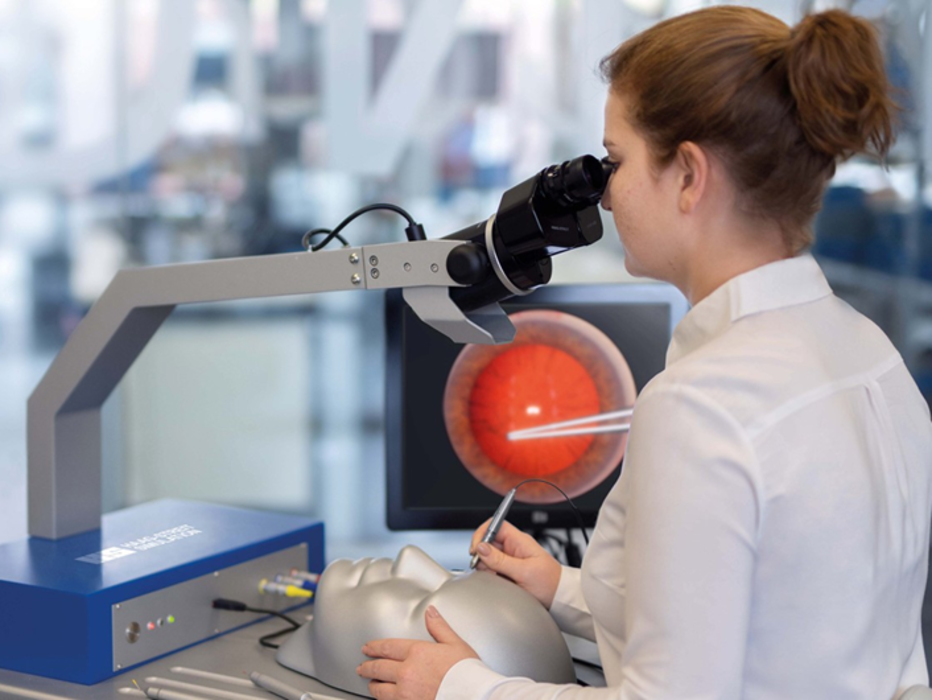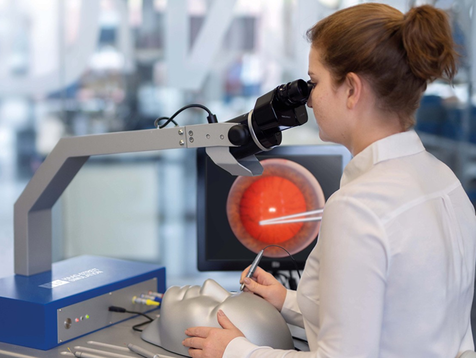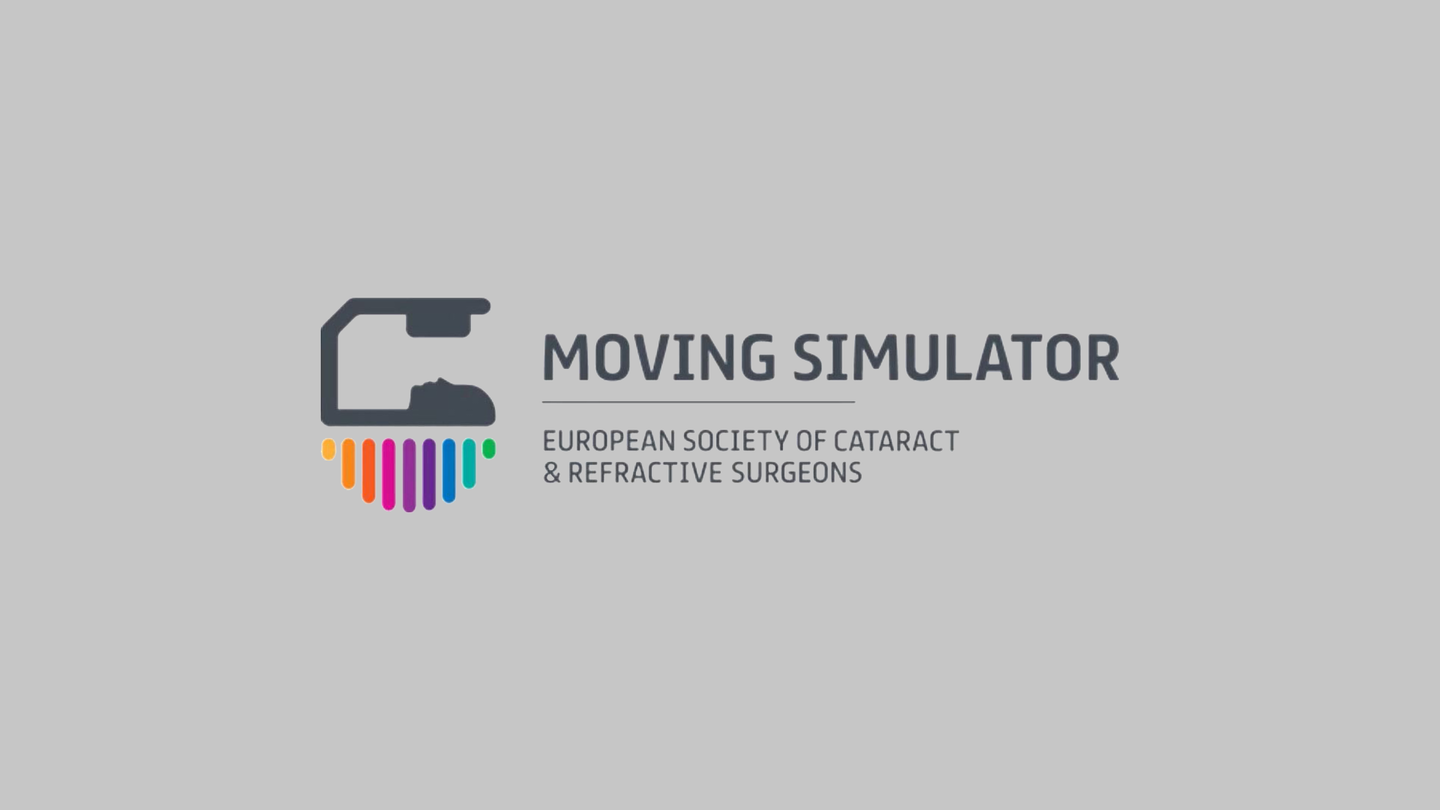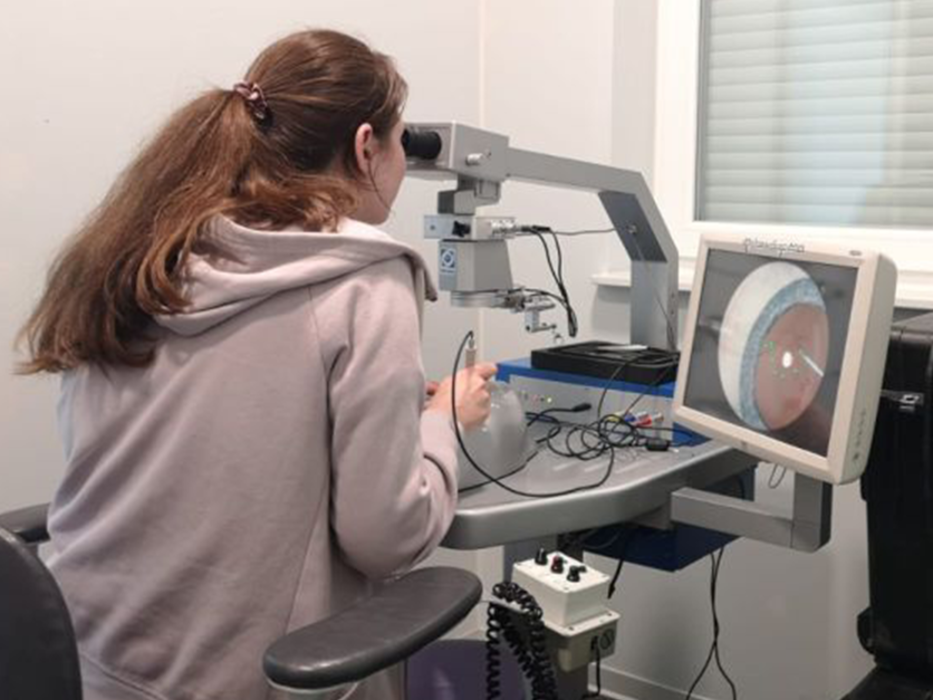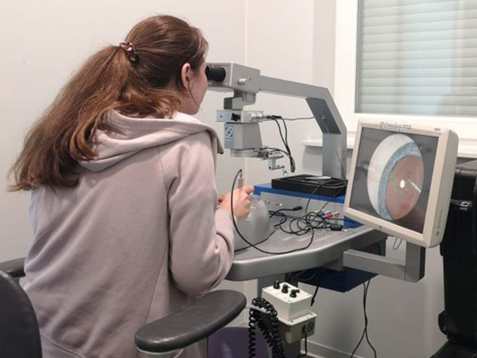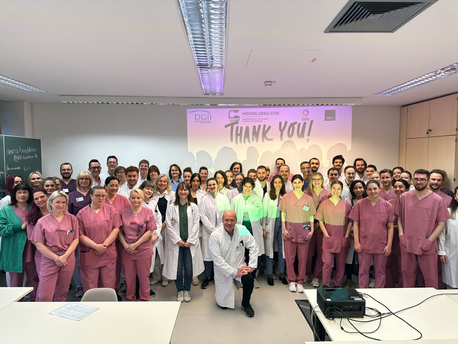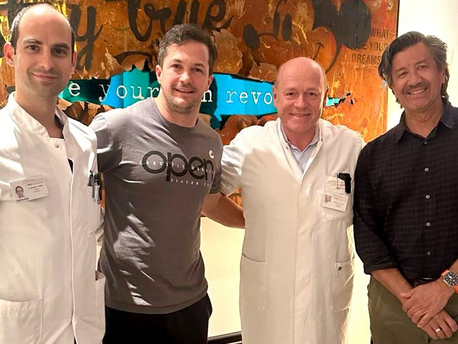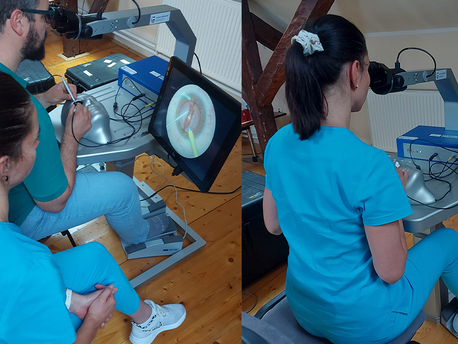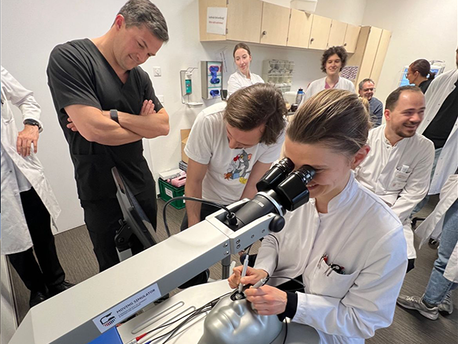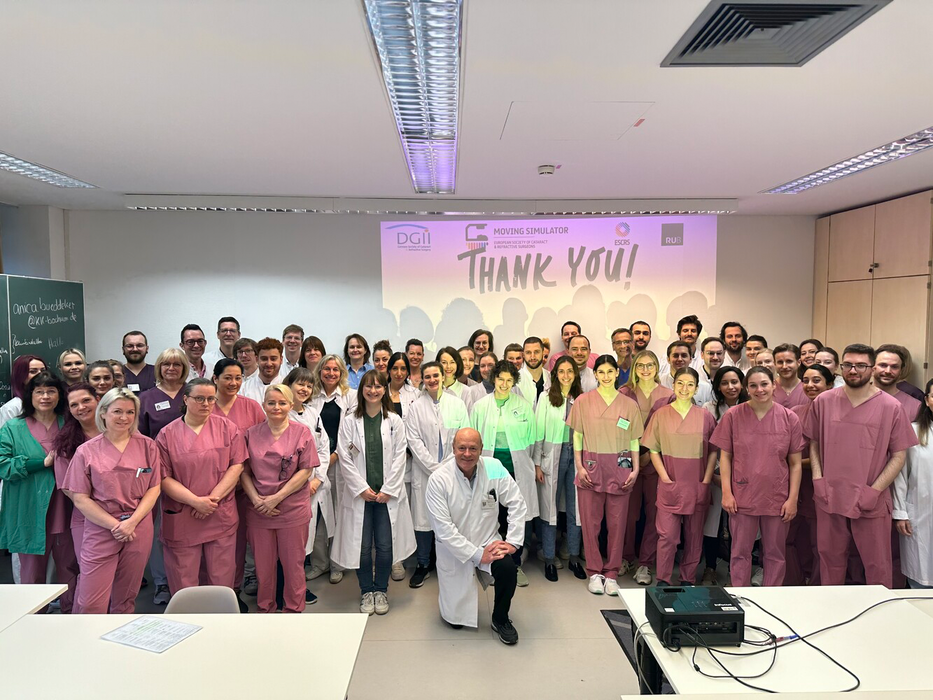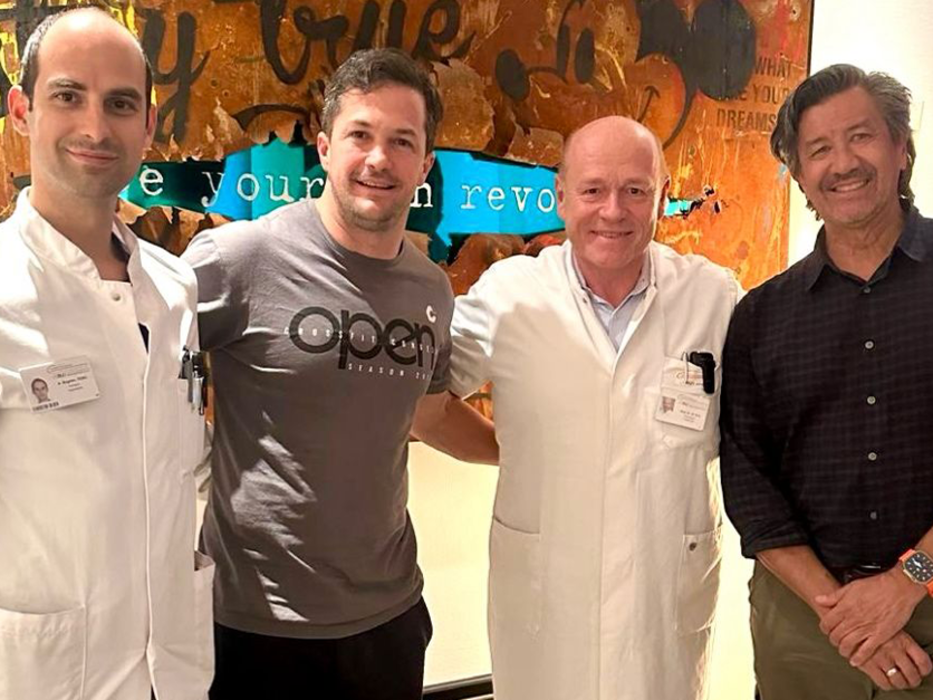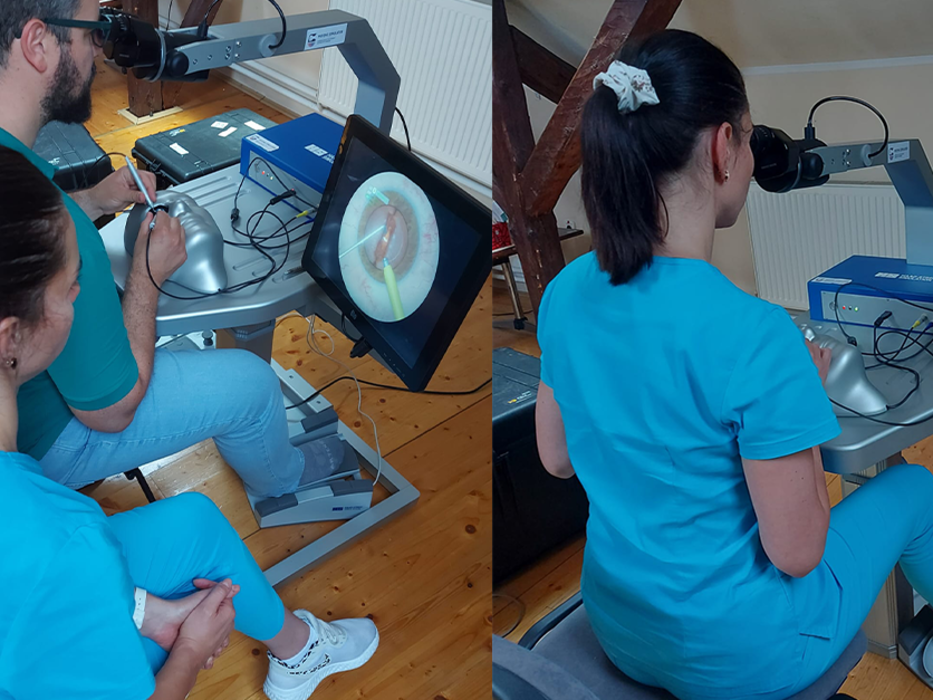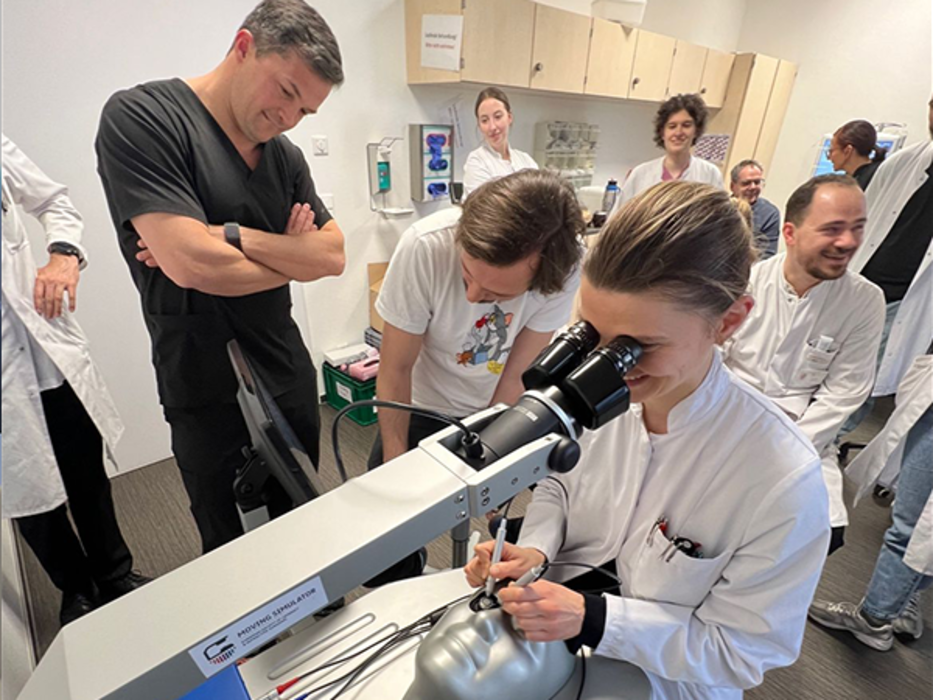Since Summer 2023, the European Society of Cataract and Refractive Surgeons (ESCRS) has provided simulator training in cataract surgery for trainees across Europe. This is part of the educational strategy of the society for its more junior members, as outlined by Dr. Oliver Findl, immediate past president of ESCRS, who initiated this project.
The ESCRS bought an Eyesi Surgical Simulator from its charitable funds for this purpose. By providing hands-on sessions to users with limited or no access, ESCRS enables many more trainees to gain the benefits of cataract surgery in a collaborative and risk-free training environment. The concept is to place the simulator with the cooperating national sister society of the country, letting them coordinate the trainees during the six to eight week-long duration.
Empowering ophthalmic excellence
While Haag-Streit Simulation has always been at the forefront of pioneering ophthalmic innovations that advance eye care globally, the ESCRS Moving Simulator initiative underscores the shared vision of elevating ophthalmic education to new standards. For over 15 years, the Eyesi Surgical Simulator has redefined how ophthalmologists learn and hone their skills. The cutting-edge training system has become an integral part of the journey for aspiring eye surgeons, providing a safe and realistic environment to practice surgical techniques and refine their skills.
"Thank You ESCRS" - this video, presented by Univ.-Prof. Dr. med. Burkard Dick of Ruhr University Eye Hospital, Bochum, Germany, explains how the ESCRS' investment of the Eyesi Surgical simulator is educating younger colleagues in cataract surgery while also levelling up the performance of advanced surgeons.
Bridging the educational divide
The ESCRS sees the potential of simulator-based training to bridge educational gaps across Europe. One of the most compelling aspects of this initiative is the commitment to bring Eyesi Surgical to European countries with limited access to this efficient training tool. In larger European nations like the United Kingdom and France, access to simulators is relatively widespread, enabling aspiring ophthalmologists to gain hands-on experience in a controlled environment, often at little to no cost.
However, this privilege has not been equally accessible to all. Smaller countries and some regions in Eastern Europe face significant challenges in procuring simulators due to the substantial initial investment required. This glaring gap in access to advanced ophthalmic training has prompted the effort of the ESCRS to provide a solution.
What is on offer?
At each stop, trainees undertake a customized cataract training curriculum, tailored to an eight-hour training program developed by Artemis Matsou and Alja Crnej from ESCRS. The curriculum is delivered in two digestible four-hour sessions. To help trainees becoming acquainted with the simulator, an instructor is on hand during the first part of the first session.
What are students learning?
The emphasis is on basic cataract skills such as anti-tremor tasks, bimanual coordination, and basic phacoemulsification steps, while some modules for more experienced surgeons are also incorporated.
The journey so far
- Romania (SRCCR)
- Ukraine (SUO)
- Austria (ÖOG)
- Greece (HSIOIRS)
- Italy (AICCER)
- Germany (GSCRS/DGII)
- Serbia (GHSM)
Watch this animation to see the journey of the Moving Simulator as it progresses on its mission around Europe:
Germany, Spring 2024
Students, residents and fellows at Ruhr University Eye Hospital Bochum engaged on an active learning cataract course. Combining the Eyesi Simulator with wet lab and artificial eyes, residents gained intensive one-on-one coaching on capsulorhexis and phaco techniques, which every young surgeon must understand at a deep level. Coaching was provided by Marshall Dial, VP, Education & Simulation Market Development, Haag-Streit, and Dr. Ivo Ferreira of Oftalmo University.
Where will the Eyesi Simulator travel to next?
The aim is that the ESCRS Moving Simulator will travel to six or more countries per year, visiting each country every other year, based on need. Watch this news item for more updates as it continues its incredible journey!
Interested to join?
Information about how to get involved with the ESCRS Moving Simulator initiative is available at the ESCRS website.
